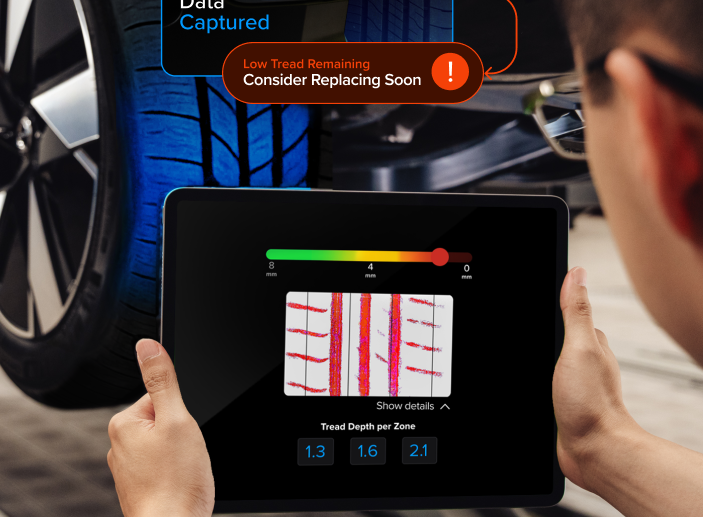
Automated Fare Collection: OCR Solutions for Inspector Devices
Automated systems are growing in importance in developed and emerging countries as organizations collect public transport fares and verify payment. Automated Fare Collection (AFC) offers numerous benefits to all users including transport planners, operators, commuters, and governments.
Jump to key topics
Jump to key topics
1. What is an Automated Fare Collection?
Automated Fare Collection is a term that refers to any ticketing system used to collect a fare without using a ticket vending machine or online collection method. It brings innovation to fare collection in public transport systems, and a key component of this is integrated ticketing. This is a process that refers to tickets that are valid across various operators and modes.
These systems typically offer:
- Physical or electronic tickets
- Ticket vending machines or online services with various payment options including web services or app use
- Connected ticket readers, turnstiles, ticket validators, or other systems
- Centralized systems which provides management to the AFC system
2. What makes AFC systems more efficient?
The usage of AFC is one way to make public transportation more affordable and efficient. These systems are increasingly compatible with the many different payment methods that consumers want to use. This includes smart cards, smartphone use, debit and credit cards, e-commerce methods like AliPay and PayPal, and printed QR codes. This has created opportunities for more integration with various transport services, too, including paratransit, bike shares, and carpooling.
AFC technology significantly improves commuter satisfaction by allowing multiple transport systems to share payment information within the network.

3. How does Automated Fare Collection benefit commuters?
Today’s commuters want more than one option when they need to purchase tickets. They also want a more efficient system. This may include benefits such as:
- Being able to pay from a single account
- Seamlessly traveling without any delays and friction
- Automatically finding the best combined ticket prices for getting from A to B
- Have a single ticket that can be used for multiple transportation services
- Allowing them to top up their account easily
4. What benefits do service providers get from AFC systems?
Service providers also benefit from using AFC systems. Firstly, they reduce dependence on cash in favor of more efficient electronic payments. They also reduce expenditures on infrastructure, and services which support ticket sales. They even provide opportunities to gain efficiency by encoding and processing tickets electronically. This can also lead to cost reduction through a centrally managed ticketing system.
Other benefits include reducing ticket fraud and abuse and effective control over reporting.
5. What challenges do AFC systems create?
AFC offers good benefits, but it can be hard to future-proof and sometimes complex to put in place. Yet, there are more people relying on public transport, which means there is an increasing need for this type of service. Automated fare collections and ticket inspectors play a big role in this. When there are multiple forms of ticket purchasing available, inspectors have to manage those forms in an efficient manner.
The ideal situation involves the passenger purchasing tickets and then that ticket is checked by an Automated Fare Collection system or a ticket officer. To work effectively, ticket officers need a ticket scanner app on a handheld device.
But it can often happen that passengers either purchase the wrong ticket or don’t get one at all. AFC enables a type of barrier that does not allow people access if they have not purchased a ticket. But these unstaffed barriers may still be bypassed by travelers without tickets. That means there is still a need for ticket inspectors to ensure people have the necessary tickets.
6. What solutions can enhance current AFC systems?
The best situation is to have a solution that consolidates and simplifies the ticket inspection process, combining the best of AFC systems with smart technology for ticket inspectors. This helps to make the inspectors’ work more efficient. It empowers them to check multiple types of tickets using standard smartphones with a barcode scanning optical character recognition tool integrated into them.
The OCR process works in the following way:
- OCR allows inspectors to scan ticket barcodes and passenger IDs. This is done instantly, which allows them to move from passenger to passenger quickly.
- OCR eliminates the need to write down or type in information. That can save ticket inspectors hours of work.
- OCR enables inspectors to scan any type of ticket including printed tickets and QR codes on a phone.
Normally, training inspectors on new technology can be expensive and time consuming, especially if they are carrying multiple pieces of equipment around to record data. But with mobile ticket scanning, they will use devices which are the same or similar to standard smartphone devices, reducing or completely eliminating the need for additional training.
With this integrated technology, inspectors need just one device to do their job. With mobile scanning, they can identify documents for dozens of countries including driver’s licenses, nationality identity cards, and passports.
7. How can ID and Barcode Scanning be integrated into a ticket scanner app?
Anyline works with virtually any smartphone that runs Android, UWP, or iOS. The scanning is done inexpensively using standard mobile devices that inspectors already know how to use.
The Anyline software development kit (SDK) is easy to integrate and is backed up by hands-on support from customer service teams ready to help. It works virtually with any smartphone and offers support for common integration frameworks including Xamarin, React Native, and Cordova. Our solution can be easily integrated in a ticket scanner app and in many mobile devices.

